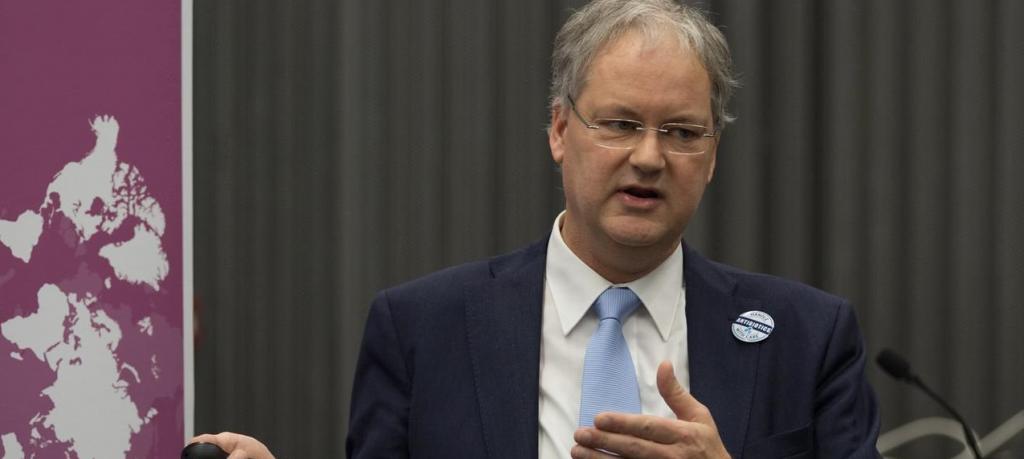“We have already entered the post-antibiotic era” warns Marc Sprenger, Director of the Antimicrobial Resistance (AMR) Secretariat at the World Health Organization (WHO), stressing that for some diseases existing antibiotics are no longer effective. In order to improve understanding and awareness of this complex issue, the first World Antibiotic Awareness Week took place from 16-22 November 2015. On that occasion, the Global Health Programme invited Marc Sprenger for a dialogue session with the Geneva international community on the implementation challenges of the Global Action Plan on Antimicrobial Resistance endorsed at the sixty-eighth World Health Assembly in May 2015.
Not surprisingly, one of the main messages of the session was that challenges to tackle AMR are enormous, requiring a holistic approach at different levels. Firstly, the medical view of bacterial resistance needs to integrate a wider social and environmental dimension, including challenges related to the use of antimicrobials for livestock and animals, and to the presence of antimicrobials in sewage water. A multisectoral approach is, therefore, crucial to effectively take action against AMR. Furthermore, the Global Action Plan on Antimicrobial Resistance needs to be translated into action at the national level with the development of national implementation plans. It seems clear that, in many countries, these plans will be closely interlinked with health systems strengthening, as the absence of trained personnel, laboratories, regulations, and basic healthcare capacities prevent the implementation of measures and best practices to address AMR. Dialogue with the local level will be a key component to close the implementation gap, and joint ownership between WHO headquarters, regional, and country offices should ensure coordination among different levels. Finally, in the fight against AMR, “everyone has a role”, including patients. A whole-of-society approach needs to foster the necessary cultural changes to establish a new system for using antibiotics.
If the above-mentioned challenges already seem monumental, the need for better data on AMR, the establishment of a surveillance system, as well as the need for new R&D models and new partnerships to overcome the current “antibiotic discovery void” also cannot be forgotten. As Marc Sprenger underlined, we must be realistic and focus on achievable objectives. Communication is a key principle guiding action in this field, in order to spread awareness, fight misconceptions about the use of antibiotics, and build understanding on AMR. Political will is also crucial to foster change in the use of antibiotics. The Global Action Plan is certainly ambitious, but its implementation is a shared responsibility. The time to act is now.
further information
A Conversation with Marc Spenger, Director AMR Secretariat, WHO


